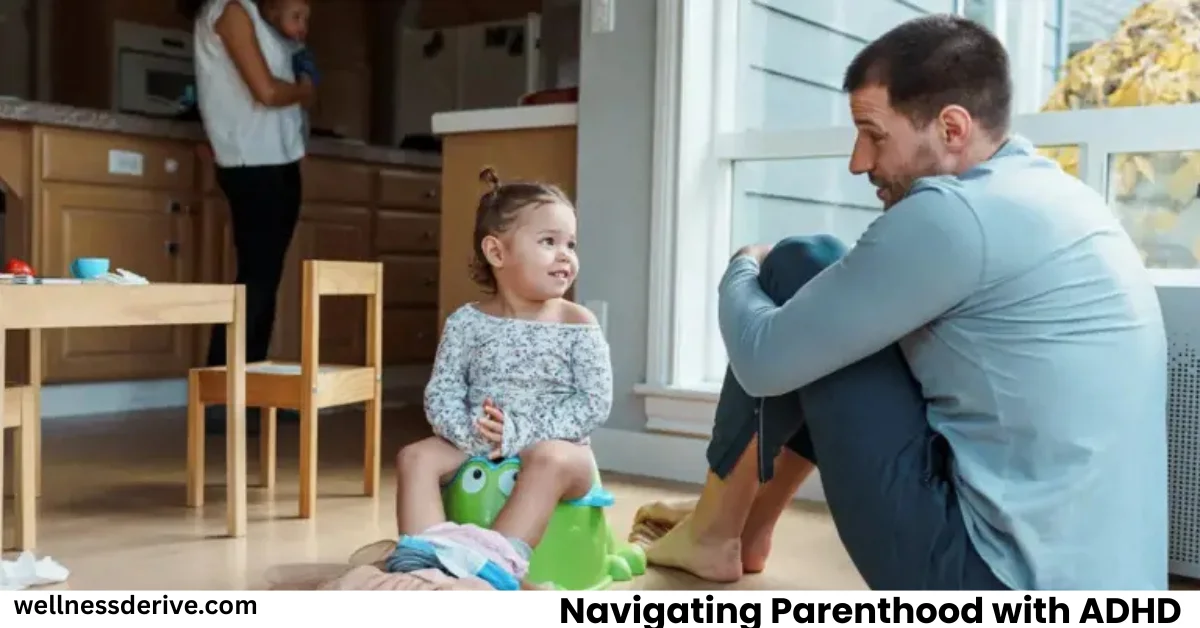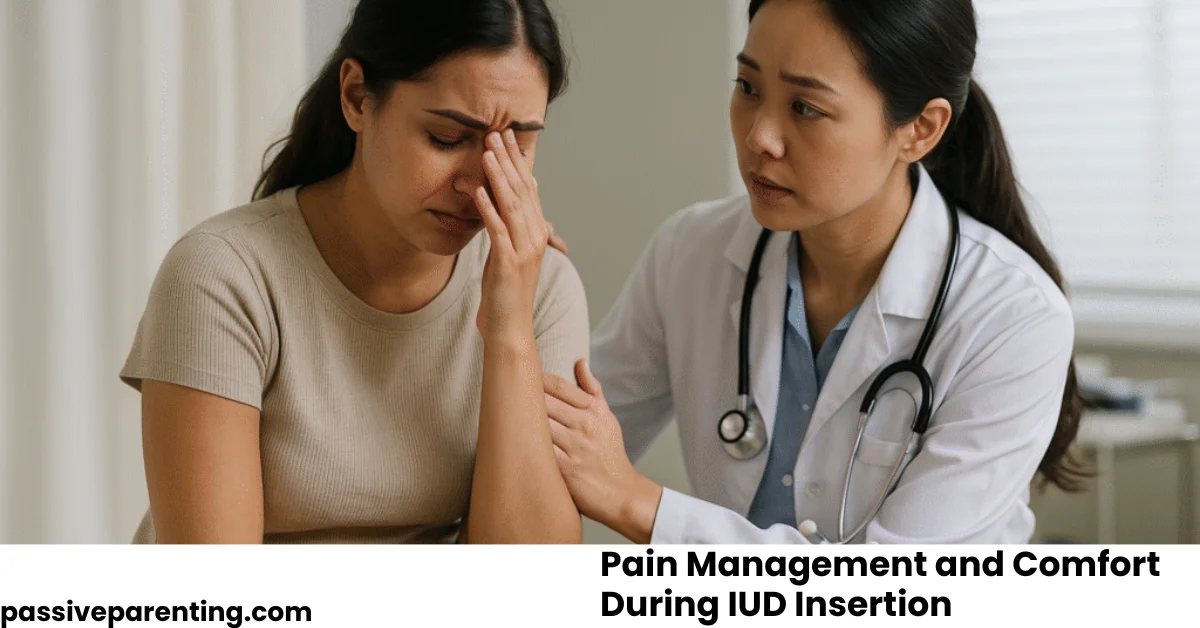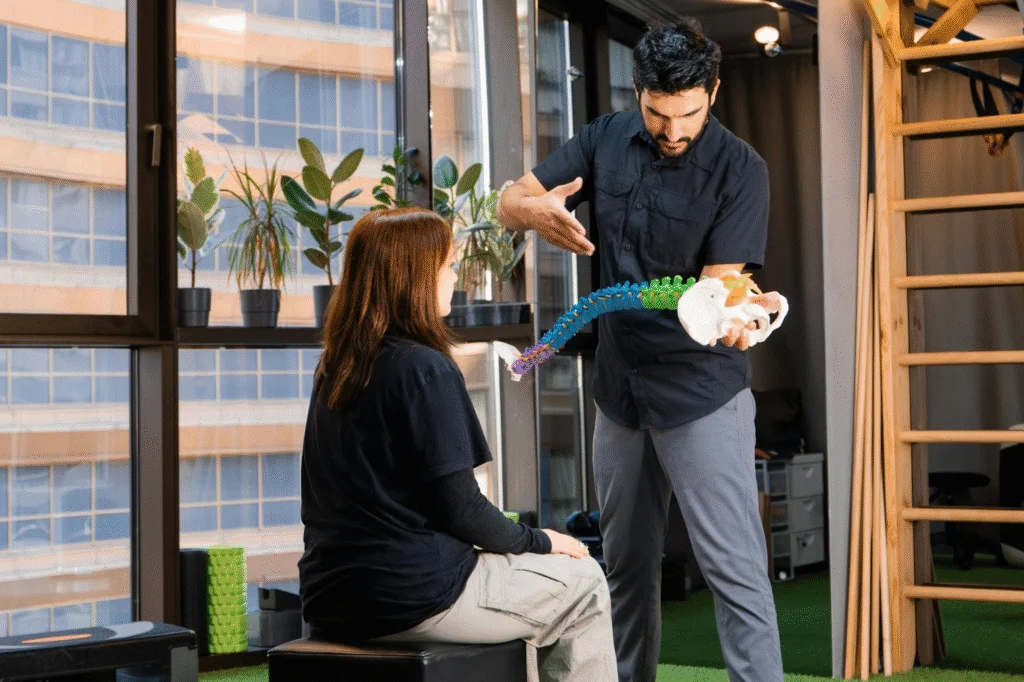Parenthood is rewarding but demanding. For parents with ADHD (attention-deficit/hyperactivity disorder), everyday tasks like getting kids ready for school, staying on top of housework, or managing schedules can feel overwhelming. Symptoms such as distractibility, forgetfulness, and impulsivity can add layers of stress.
The good news? With the right strategies, navigating parenthood with ADHD is not only possible but can also bring out your creativity, energy, and problem-solving skills. This guide offers practical, science-backed tips to help you stay organized, manage emotions, and create a happy family environment.
Understanding ADHD’s Impact on Parenting
Common ADHD Symptoms That Affect Parenting
ADHD can affect focus, planning, and emotional regulation. According to the Centers for Disease Control and Prevention (CDC), adults with ADHD often struggle with time management, forgetfulness, and impulsivity. These challenges can make consistent routines or calm discipline harder to maintain.
Emotional and Relationship Challenges
Parents with ADHD may experience guilt or frustration when they feel disorganized or impatient. This can create tension with partners or children. The Children and Adults with Attention-Deficit/Hyperactivity Disorder (CHADD) organization highlights that understanding ADHD as a neurological condition—not a character flaw—is key to maintaining positive family relationships.
Creating Daily Routines That Really Work
Routines help reduce chaos and decision fatigue. With ADHD, the goal is structure without rigidity.
Simplify Morning and Evening Routines
- Prepare clothes, school bags, and lunches the night before.
- Use visual checklists for kids and yourself to track each step.
Use Visual Planners and Digital Reminders
Large wall calendars, color-coded schedules, and smartphone alerts can keep everyone on the same page.
Break Big Tasks into Small Steps
Instead of “clean the kitchen,” break it into steps like clearing counters, loading the dishwasher, and wiping surfaces. This approach aligns with recommendations from ADDitude Magazine for ADHD-friendly task management.
Time Management and Prioritization
Parents with ADHD often underestimate how long tasks take, leading to constant rushing.
Time-Blocking and Calendar Tools
Block time for key activities, such as homework help or meal prep. Set alarms for transition periods.
Set Realistic Daily Goals
Choose three top priorities each day. Celebrate small wins instead of focusing on unfinished tasks.
Learn to Say No to Overcommitments
Avoid overscheduling your family. Protect downtime to reduce stress for everyone.
Emotional Regulation and Mental Well-Being
Emotional highs and lows are common with ADHD. Learning to manage them helps create a calmer home.
Recognize Triggers and Early Signs
Notice when noise, clutter, or lack of sleep increases irritability.
Practice Quick Grounding or Mindfulness Exercises
Simple breathing or brief meditation sessions can lower stress in minutes. The American Academy of Pediatrics supports mindfulness as a helpful tool for parents managing stress.
Consider Therapy or ADHD Coaching
Cognitive-behavioral therapy (CBT) and ADHD coaching provide personalized strategies for emotional balance and organization.
Building Communication and Support Systems
Support is vital for thriving as a parent with ADHD.
Strengthen Partner and Family Communication
Share how ADHD affects your day. Divide tasks based on each person’s strengths.
Connect with ADHD-Friendly Parenting Communities
Groups like CHADD Parent to Parent and online ADHD forums offer encouragement and solutions from others who understand.
Collaborate with Teachers and Childcare Providers
Inform your child’s caregivers about your ADHD so they can communicate clearly and help with consistent routines.
Self-Care and Healthy Habits for ADHD Parents
Parenting with ADHD is easier when you protect your own health.
Prioritize Sleep and Nutrition
Aim for 7–9 hours of sleep. Eat balanced meals rich in protein and fiber to stabilize energy.
Keep Moving
Daily activity—even a 20-minute walk—boosts focus and mood.
Manage Medication with Professional Guidance
If prescribed, ADHD medication can improve attention and reduce impulsivity. Work with your healthcare provider for proper management.
Make Time for Personal Interests
Schedule small moments for hobbies or relaxation to recharge.
Helping Children Understand ADHD
Explaining ADHD in age-appropriate ways can strengthen family bonds. Children who understand that their parent’s distractibility or impatience isn’t personal are more likely to respond with empathy.
Model coping skills like using planners or practicing deep breathing so kids learn healthy habits by example.
When to Seek Professional Help
Consider professional support if:
- You feel constantly overwhelmed or anxious.
- Family relationships are under significant strain.
- Symptoms interfere with work or health.
ADHD specialists, therapists, and support groups can create personalized plans for long-term success.
Quick Tips to Stay on Track
- Use phone alarms for key transitions like bedtime or school pickup.
- Keep “launch pads” near doors for shoes, bags, and keys.
- Batch similar tasks (paying bills, meal prepping) to save time.
- Review the next day’s plan every evening for peace of mind.
Conclusion:
Parenting with ADHD brings unique challenges, but it also offers opportunities to model resilience and creativity for your children. By building simple, flexible routines, using visual tools to stay organized, and prioritizing your mental and physical well-being, you can create a calmer, happier home. Support from partners, professionals, and ADHD-friendly communities can make an enormous difference. Remember, perfection is not the goal—progress and connection are. With understanding, planning, and self-compassion, navigating parenthood with ADHD can become a journey of growth for the whole family.




